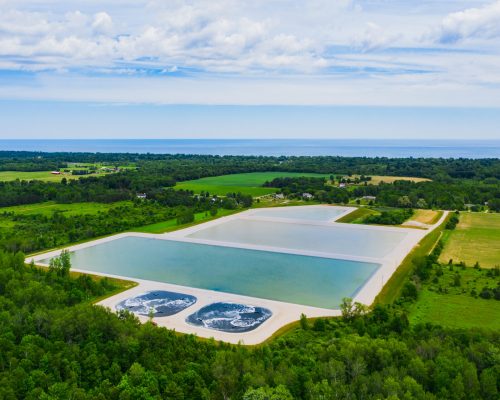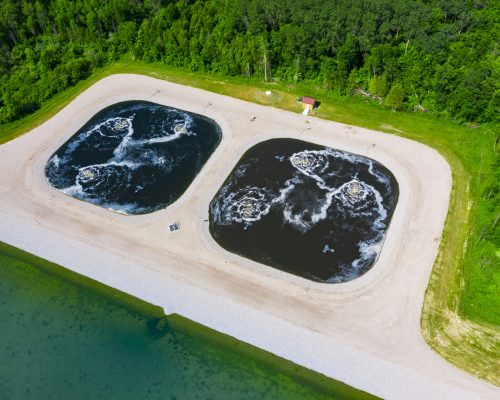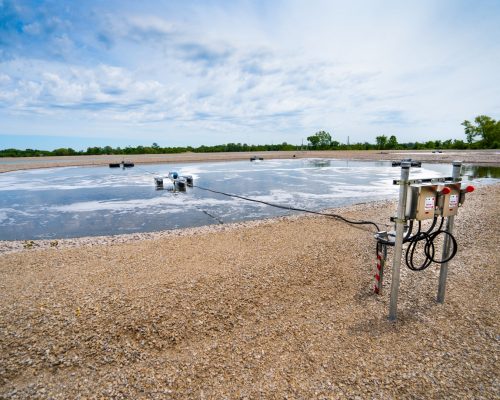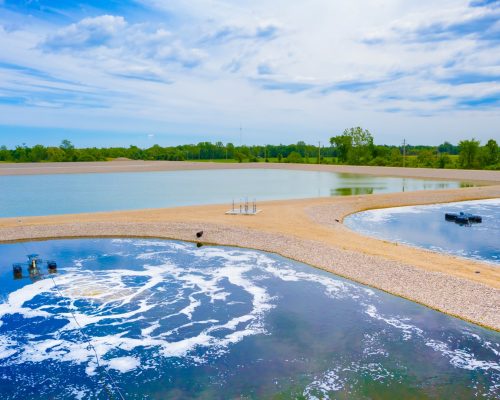Worth Township needed to create a sewer system to replace the septic system that was leaking sewage into Lake Huron. Worth Township hired Prein&Newhof to design a $23 million project to keep sewage from leaking septic systems out of Lake Huron.
Worth Township bought 72 acres for a new wastewater lagoon system. They chose lined lagoons over a traditional wastewater treatment plant, reducing the project cost from $32 million to $23 million. Sewage flows into the first lagoon where solids will settle, then be pumped into the second lagoon for final treatment. A permit from EGLE allows them to release treated water twice a year into a local creek.
Worth Township’s sewer district also includes 11 pump stations.




